Every time Daryna Koryagina enters her Budapest flat rented to her by a Hungarian friend, she sees the same sticker on a wardrobe inside the entrance.
"Sorry about our prime minister," it reads.
The 33-year-old refugee and PhD student is one of tens of thousands of Ukrainians who fled Russia's full-scale invasion and chose to live in what many might consider a strange choice — Hungary, the EU's most pro-Russian, anti-Ukraine country.
"It was a bad idea to go on Tinder dates with Hungarians," Koryagina told the Kyiv Independent. "They were throwing around cliches, like 'not everything is so obvious with Russia' and 'we need to make peace.'
"Thank God, no one has ever told me that Ukraine needs to give up the (Russian-occupied) territories."
But just like the friend who rents her the apartment, Koryagina has found a significant number of Hungarians eschew the pro-Russian, anti-Ukrainian rhetoric of their country's leader.
"There are Hungarians who are incredibly supportive of Ukrainians," Koryagina said, adding: "Some have a sort of internal guilt about the way their country is acting during these times."
Hungary's stance on Russia and Ukraine
Hungarian Prime Minister Viktor Orban, widely seen as the EU's most pro-Russian leader, has repeatedly opposed military aid for Ukraine, arguing that Western support prolongs the war.
He has maintained close ties with Russian President Vladimir Putin, holding official meetings despite the full-scale invasion and amplified Kremlin narratives in Europe.
Hungary has used its veto power to stall key EU decisions on Ukraine, including military aid, and is against Kyiv joining the bloc.
Hungarian state-run media spreads anti-Ukrainian narratives using headlines such as "Even cholera has not completely disappeared in Ukraine" and "Ukraine's EU accession could bring a pension disaster to Hungary."
In one of the latest governmental advertisements with the caption "Voks 2025 — vote on Ukraine's EU membership," President Volodymyr Zelensky, EU Commission President Ursula von der Leyen, and European People's Party President Manfred Weber were depicted in front of a red cross.
"We will not let them decide over our heads!" the headline read.
"We will not let them decide over our heads"
Another year, another propaganda campaign by the Hungarian government. This time, it is about the "referendum" or "national consultation" on whether Hungarians support Ukraine's accession to the EU. pic.twitter.com/21I4Jww596
Balazs Trencsenyi, a Hungarian historian and Central European University (CEU) professor, described how Orban leveraged the war in Ukraine during Hungary's 2022 election campaign.
"The leader of the Hungarian opposition made a statement that was actually very innocent and normal — he said that Hungary would fulfill its NATO duties if needed," he told the Kyiv Independent.
"Then the government press turned it into a fake news campaign that he would send Hungarian troops to Ukraine.
"As a result, there was a huge panic in the Hungarian countryside, and people who had never voted before went to vote for Orban, saying they didn't want their children to be drafted into the army. So actually, Orban won the election in April 2022 with an anti-Ukraine campaign."
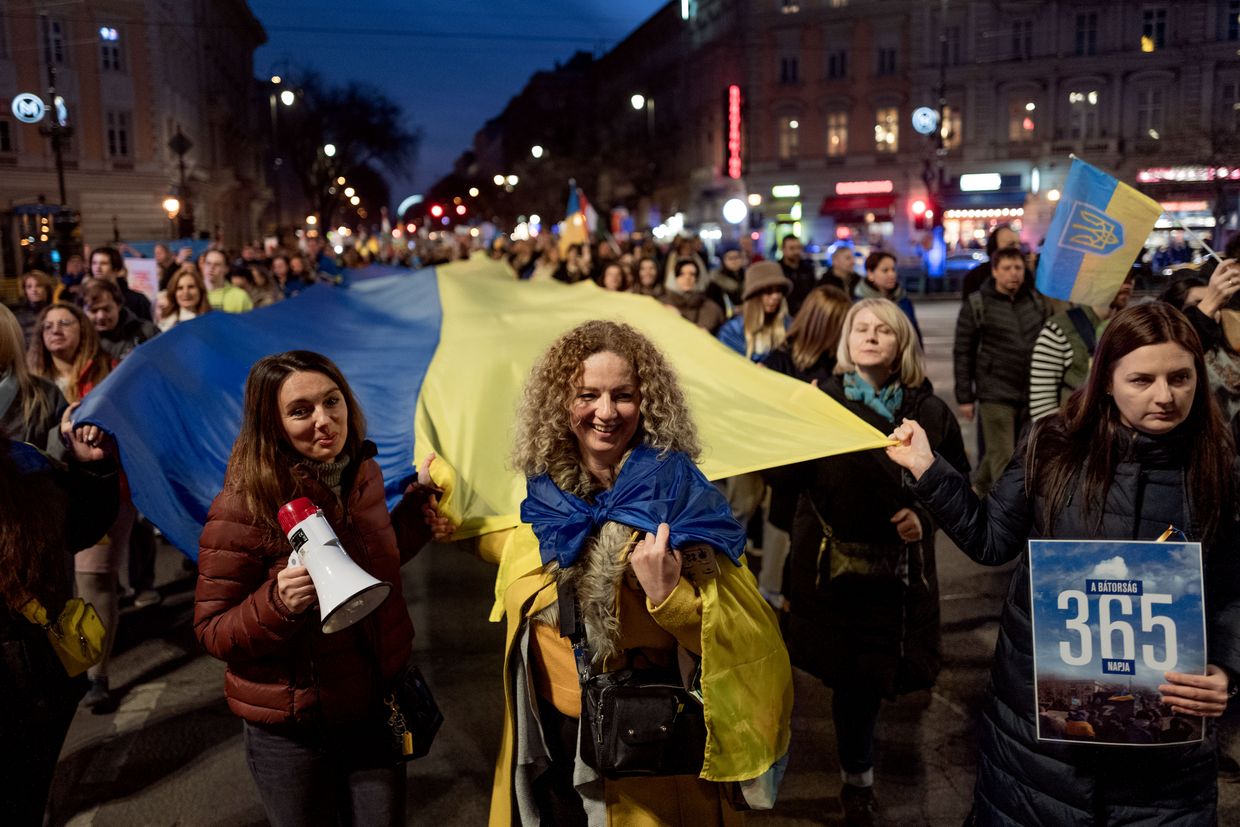
Ukrainian refugees in Hungary
The anti-Ukraine rhetoric of the election campaign coincided with the arrival of more than 60,000 Ukrainian refugees, a significant number but far lower than the millions who went to other European countries such as Germany and Poland.
Aside from the message being propagated by the government, other factors for the low number include relatively low social benefits for refugees, amounting to only 60 euros per month — in Germany, it was 451 euros in 2023 — bureaucratic issues and the language barrier.
"If you want to live in Budapest, you must work hard," Nata Holenko, a 40-year-old Ukrainian refugee from Sumy, told the Kyiv Independent. "Ukrainians from big cities or those with high-paying online jobs often come here."
Holenko left Ukraine in mid-March 2022 with her two children, aged four and 11 at the time, and headed for Budapest, where her husband was working.
Many refugees who crossed the border at that time were greeted by several organizations, such as Bona Fide and the Bright Sunlight Association, that rushed to help in the aftermath of Russia's full-scale invasion.
"When there was a large influx of Ukrainians in 2022, it was not only Ukrainians who came to the platforms, bus, and train stations but also many Hungarians," Csilla Szlobogyan Kurtyak, co-founder of Bona Fide, told the Kyiv Independent.
"They remain in volunteer teams to this day, helping with employment, children's enrollment in educational institutions, and housing," she added.
Olga Petrova, a 37-year-old Ukrainian historian from Yenakiieve, Donetsk Oblast, who moved to Budapest when Russia occupied her home in 2014, witnessed how many Hungarians "rushed to help Ukrainians when the full-scale war began."
"Many people have clear associations with the events in Hungary in 1956, when Soviet tanks violently crushed the Hungarian Revolution," she told the Kyiv Independent.
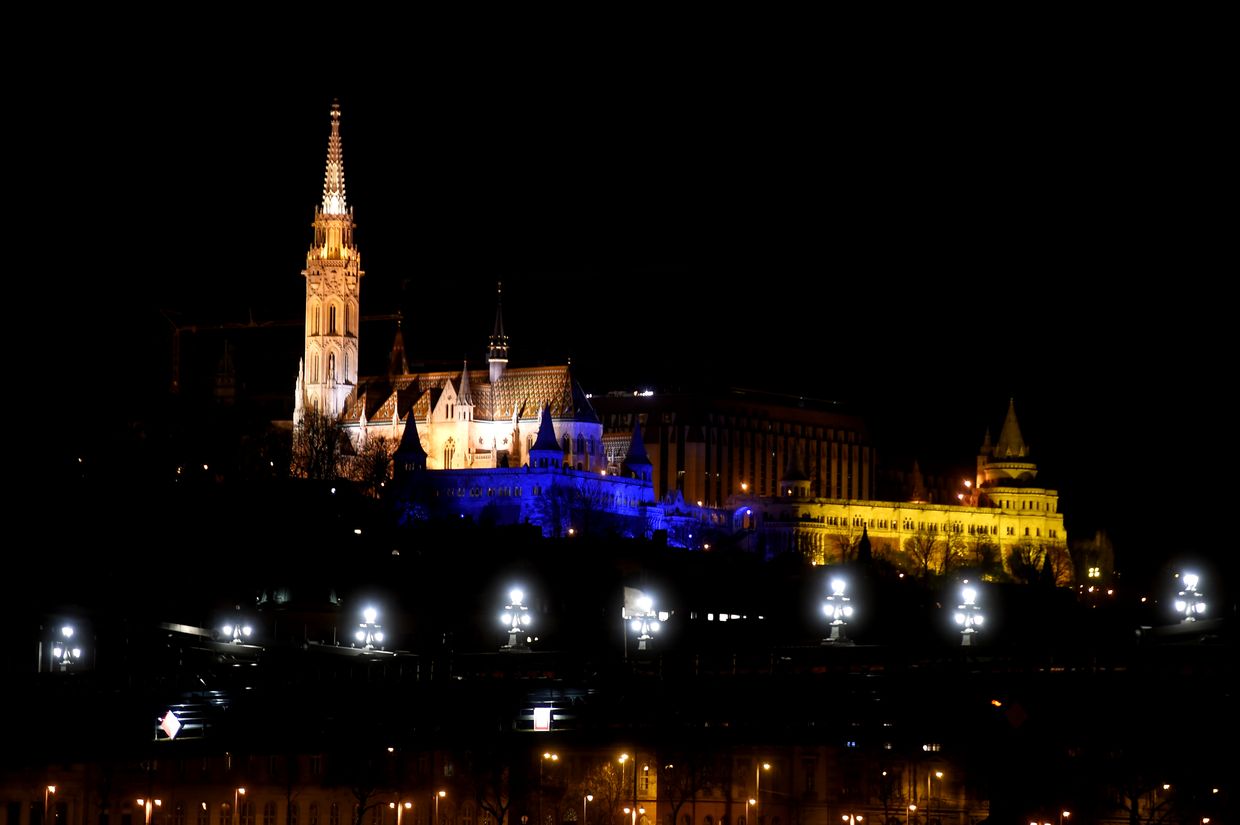
Hungarian public support for Ukraine
Despite the anti-Ukraine rhetoric of the Orban government, pro-Kyiv sentiment among the public is evident.
According to an April 13 poll conducted by the party of opposition leader Peter Magyar, which received over 1.1 million responses, 58.18% of participants backed Ukraine's EU accession bid.
A separate April 7 poll by the Republikon Institute also found a narrow majority of Hungarians in favor of Ukraine joining the bloc.
And Hungary's capital remains remarkably pro-Ukrainian. The city's mayor, Gergely Karacsony, said in November 2022 that he felt "shame" at his country "siding with Russia," a sentiment that remains more than three years into the war.
"The Municipality of Budapest stands firmly by the side of the victims and those fighting bravely for the freedom of Ukraine," the city's press officer, Naszados Zsofia, told the Kyiv Independent.
Budapest has actively supported Ukrainian refugees by providing financial assistance, power generators, and free public transportation to Ukrainians.
The city also established the 'Budapest Helps' Information and Community Center to assist Ukrainian refugees and organized summer camps for children from war-affected areas.
"If you look at Orban's propaganda posters, it paints one picture. But if you look a bit deeper, even some government representatives are in solidarity with us," Szlobogyan Kurtyak said, highlighting the 2024 "brother cities" agreement between the Ukrainian city of Lebedyn and Hungary's city of Papa.
"Not all Hungarians are Orban," she added.
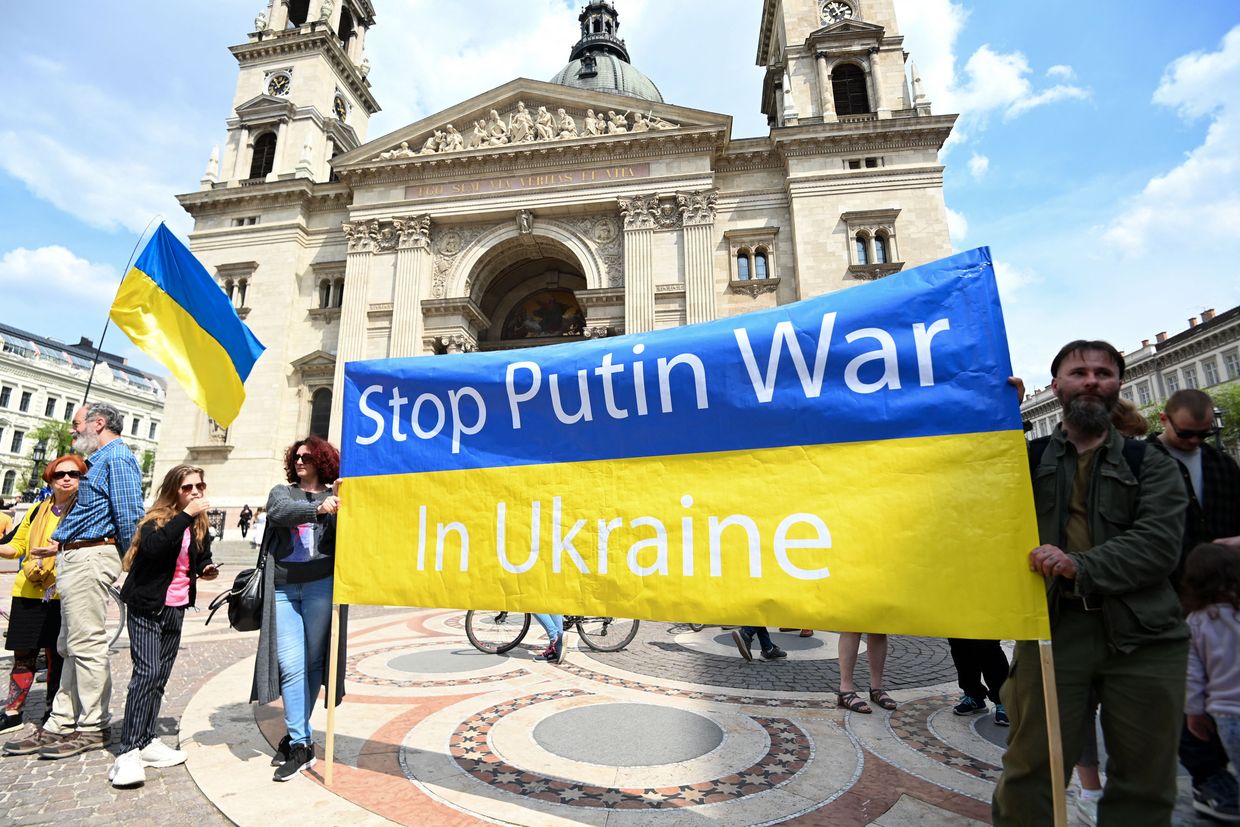
Hungarians and the Ukrainian army
Hungarian citizens are prohibited by law from serving in another country's armed forces, a crime punishable by up to 14 years in prison.
But that has not stopped them from providing support in other ways, helping to make trench candles for example, and raising money for the Ukrainian army.
In 2022, three Hungarians — Gaspar Kerekes-Nagy, Mihaly Olah, and Balazs Trautmann — founded the Carpathian Dragons (Karpataljai Sarkanyellato), which has raised 188 million forints ($528,371) to buy drones, winter gear, and electric generators for Ukraine's Armed Forces.
"Until 2022, Hungarian society had a superficial understanding of Ukraine," Viktoria Petrovska, a Ukrainian who moved to Hungary as a child and is now head of Yednist, a group that helps refugees and raises funds for the Armed Forces, told the Kyiv Independent.
"However, after the outbreak of the war, everything changed, and Hungarians began to actively help," she said, adding that 50% of the donations to Yednist come from Hungarians. Yednist has raised 44 million forints ($123,539) since the full-scale war began.
"Even though support has decreased, and politicians are filling Hungarians with the idea that Ukraine is at fault for the war, many people have not forgotten about Ukraine," she added.
A handful of Hungarians are even known to have defied the law and crossed into Ukraine to fight Russia.
Ukraine also has the 68th "Zakarpatski Sharkani" volunteer battalion, which draws upon the large Hungarian minority living in Ukraine's Zakarpattia Oblast, where approximately 150,000 ethnic Hungarians resided before the full-scale war, according to the 2001 population census.
As of 2024, the number of ethnic Hungarians in Transcarpathia was 70,000-80,000, according to the Department of Nationalities and Religions of the Transcarpathian Regional State Administration.

'I just miss the proper food'
Koryagina and her parents arrived in Hungary on March 10, 2022, settling in Budapest. She told the Kyiv Independent that she still sees many Russians on the streets of the capital, saying they are "beloved here."
"Hungarians generally don't like foreigners," she adds, saying that although her experience of living in the country has been positive on the whole, she is sometimes disappointed by how she is occasionally treated.
"When showing a Ukrainian passport (to take the bus for free), you see drivers or controllers making faces. I really hate showing it. The best reaction would be no reaction," she said.
Koryagina and her family have settled well in Budapest — she is enrolled in a CEU PhD program, and her mother works in the first Ukrainian-language school in Budapest, which opened in August 2022. But ultimately they all want to return home to Ukraine.
"I can’t wait for my studies to end. I just really want to come back," she said.
"I keep going to a super overpriced but really good Ukrainian restaurant with my friends here because I just miss the proper food."
This Ukrainian mining company is losing hope in Trump’s minerals deal
Tense negotiations over a minerals deal have tested U.S.-Ukraine relations, and one mining company’s initial optimism about the agreement.

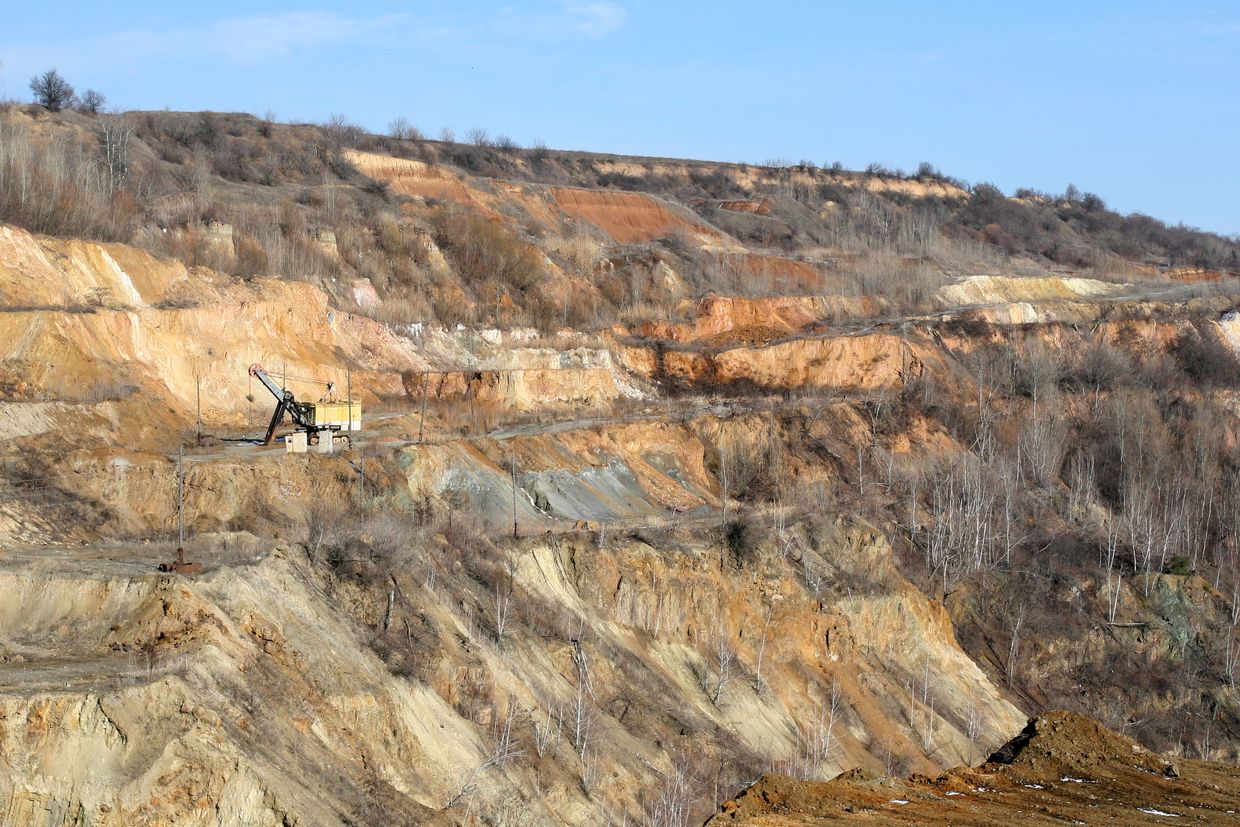
.png)
 German (DE)
German (DE)  English (US)
English (US)  Spanish (ES)
Spanish (ES)  French (FR)
French (FR)  Hindi (IN)
Hindi (IN)  Italian (IT)
Italian (IT)  Russian (RU)
Russian (RU)  3 hours ago
2
3 hours ago
2
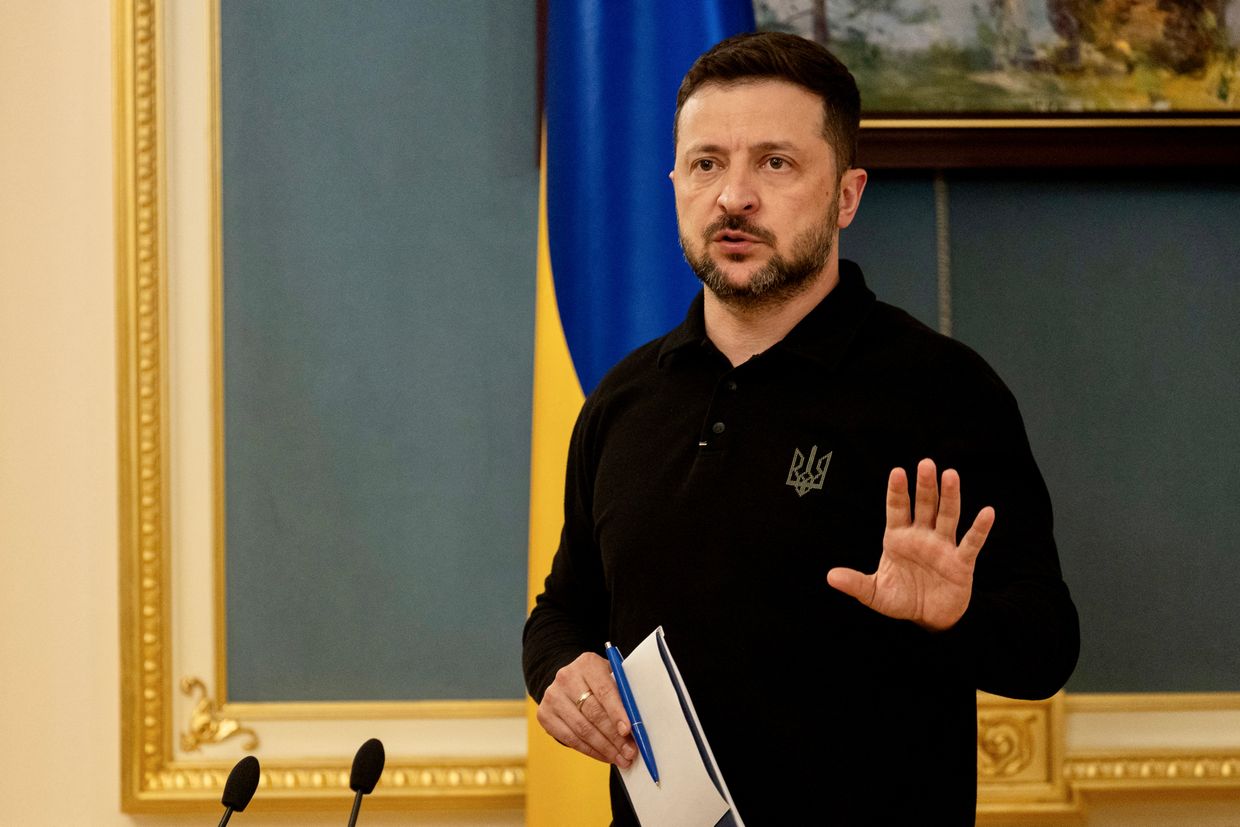
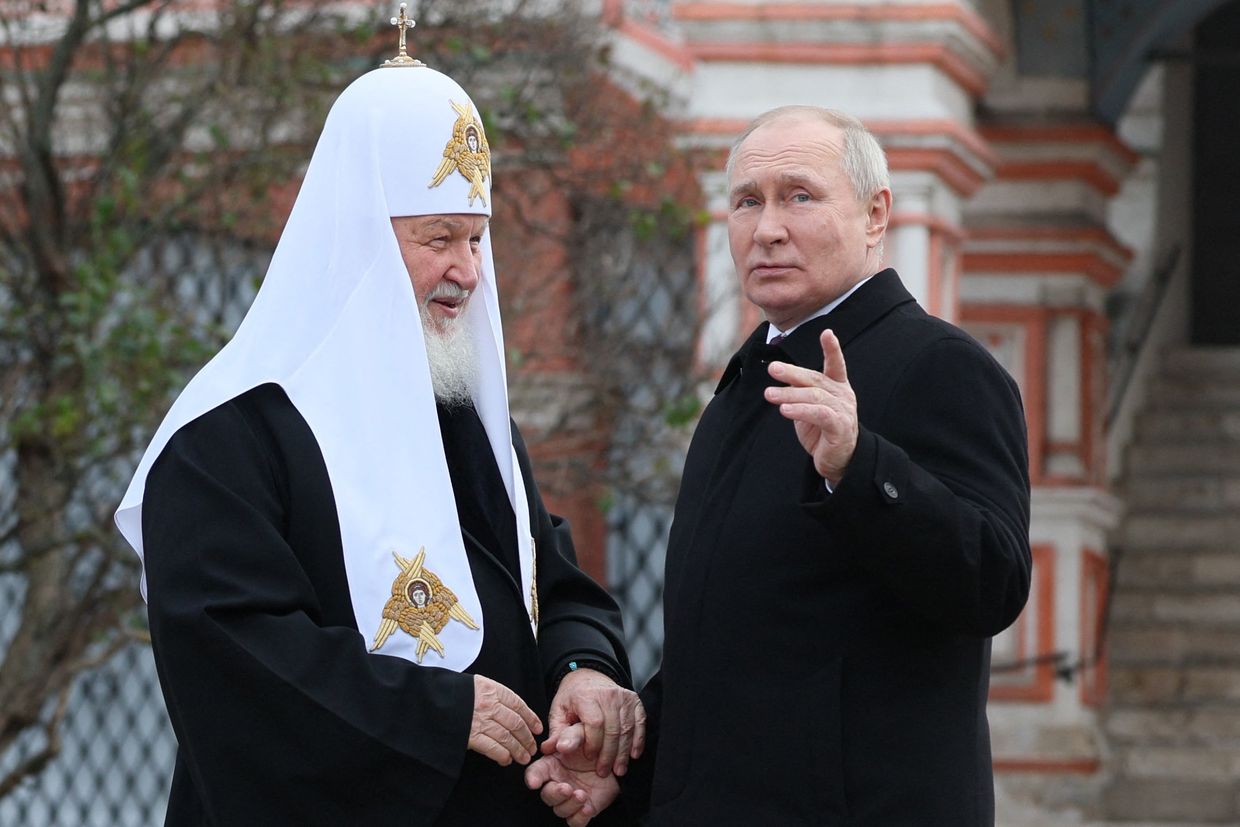
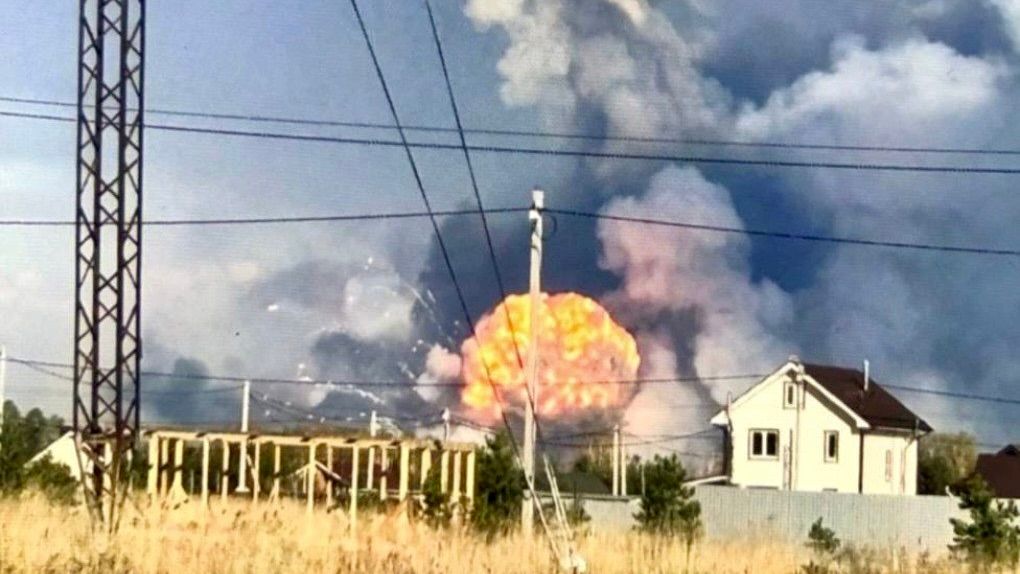
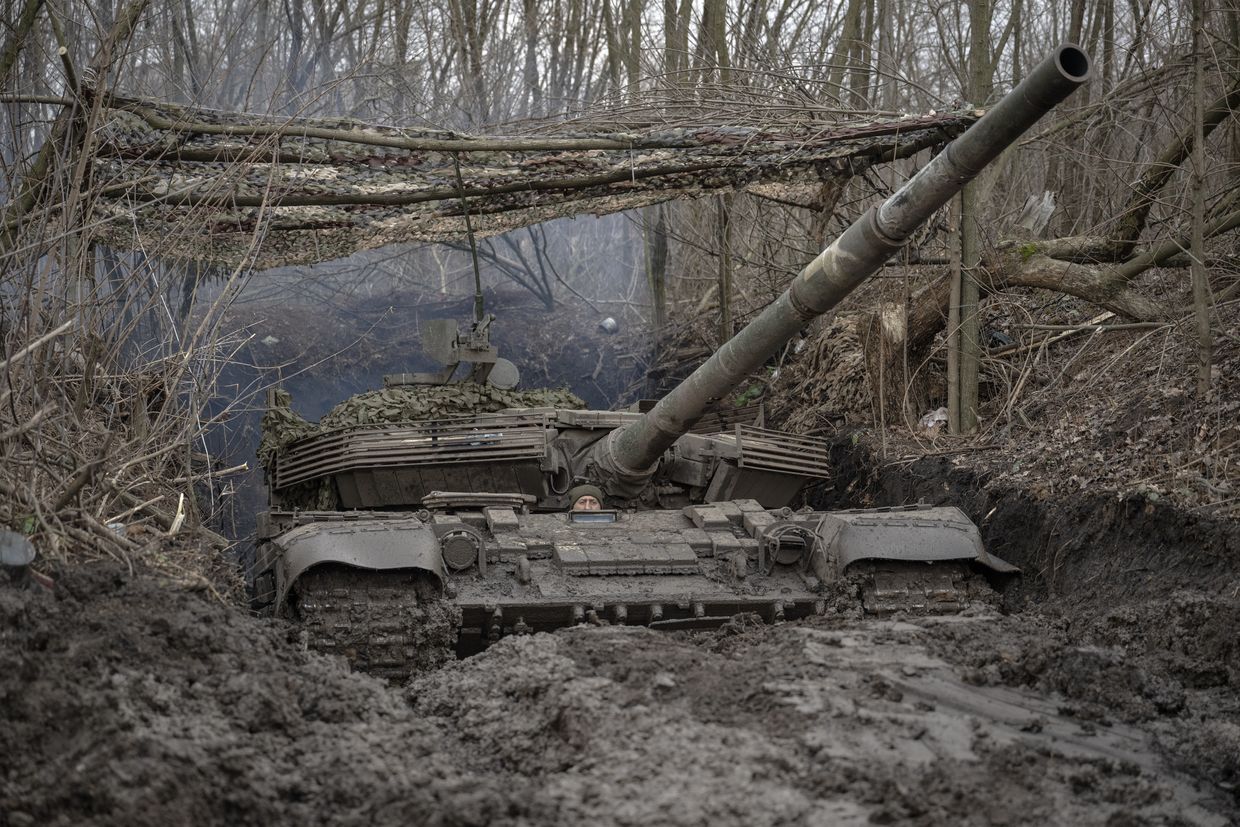





Comments